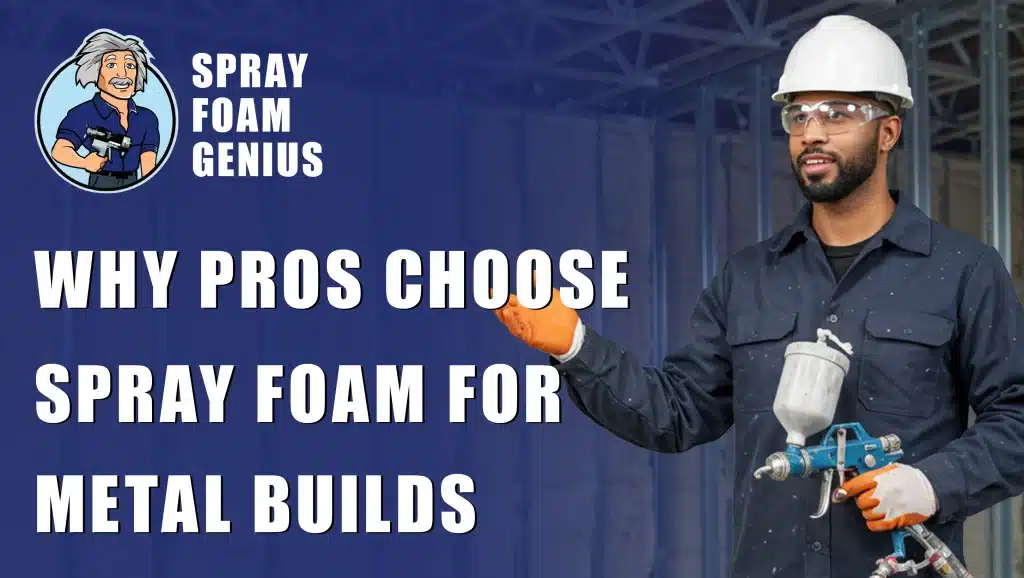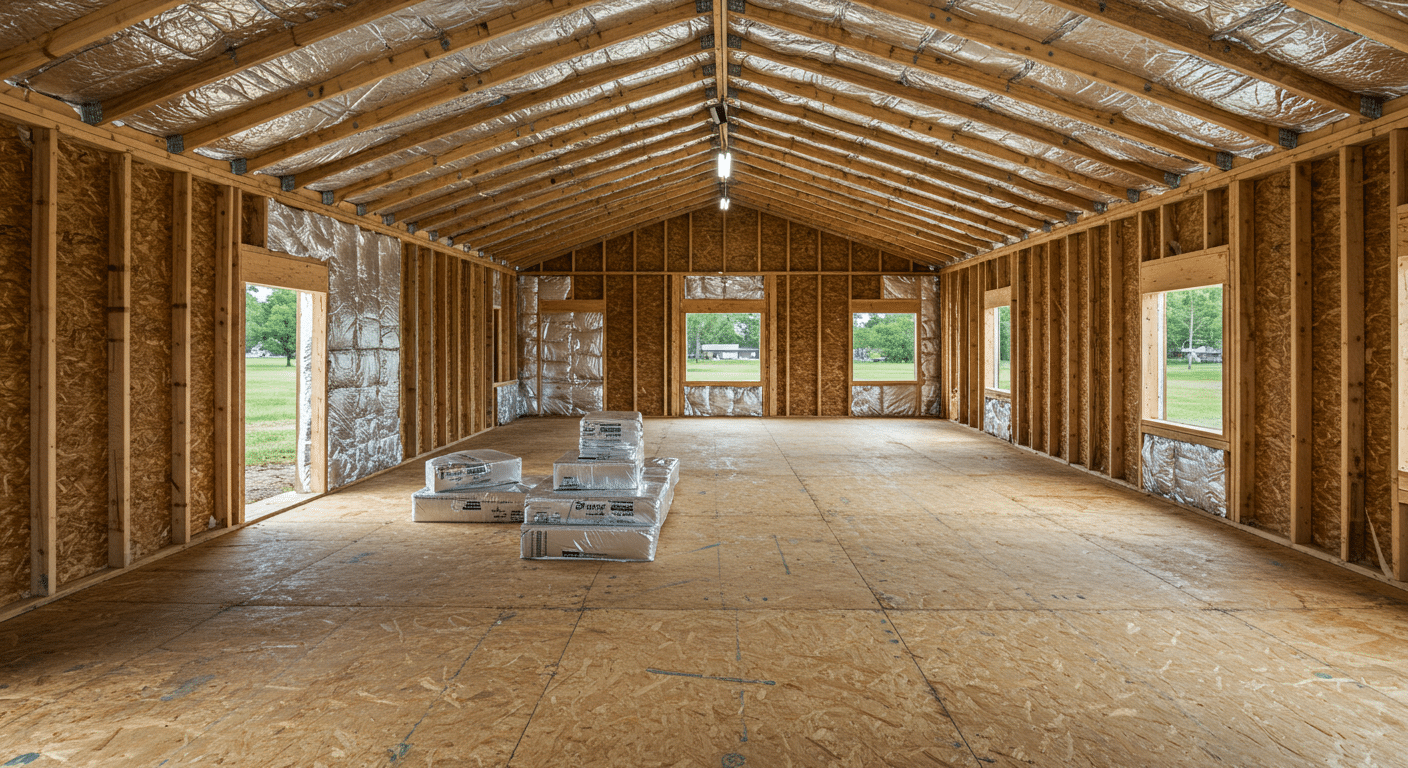
Contractors recommend spray foam insulation for metal buildings and pole barns because it provides superior air sealing, condensation control, and thermal performance in structures with large surface areas and exposed framing. Unlike traditional insulation, spray foam adheres directly to metal surfaces, preventing moisture buildup, which is critical in unconditioned or mixed-temperature environments. It also reinforces structural integrity, adds R-value without bulk, and helps reduce long-term energy costs. This makes spray foam a preferred choice for durability, comfort, and efficiency in agricultural, industrial, and storage structures.
Key Factors Affecting Spray Foam Use in Metal Structures
| Factor | Spray Foam Advantage | Traditional Insulation Limitation |
| Condensation Control | Creates vapor barrier, stops condensation | Prone to moisture retention |
| Air Sealing | Seamless, airtight coverage | Gaps and leaks possible |
| Thermal Performance | High R-value per inch | Lower R-value, thicker application |
| Surface Adherence | Bonds to irregular metal surfaces | Requires mechanical fastening |
| Structural Support | Adds rigidity and durability | No structural benefit |
Spray Foam in Metal Buildings: Pros and Cons
Pros
- Prevents condensation and corrosion
- Superior air and moisture sealing
- High energy efficiency with minimal thickness
- Adds structural strength
Cons
- Higher upfront cost
- Requires professional installation
- Sensitive to UV without coating (if exposed)
Why Condensation Control Is Critical

Metal buildings and pole barns are especially vulnerable to condensation due to temperature fluctuations between interior and exterior surfaces. When warm air meets cold metal, moisture forms—leading to rust, mold, and insulation degradation. Spray foam forms a continuous air and vapor barrier directly against the metal, stopping condensation at the source. This helps preserve the building’s structural integrity, contents, and insulation performance over time.
Performance and Longevity Advantages
Spray foam insulation delivers long-term value in metal structures by maintaining consistent thermal performance for decades without sagging, shifting, or absorbing moisture. Closed-cell spray foam, in particular, offers an R-value around R-6 to R-7 per inch and resists pests and mildew. This durability reduces maintenance needs and supports better indoor climate control for temperature-sensitive storage, equipment, and livestock use—key concerns in agricultural and utility buildings.
Spencer is a Google ranking expert and SEO consultant who has helped businesses in the spray foam marketing industry achieve their online marketing goals. Spray Foam Genius Marketing has a proven track record of success, having achieved some impressive results for his clients.

